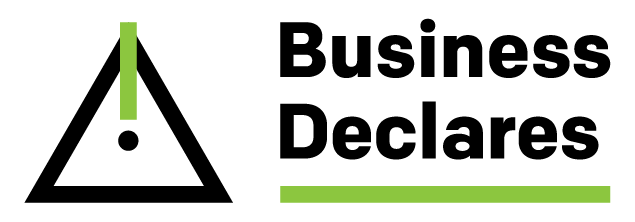Business Declares at the Better Business Summit
Business Declares have been delighted to partner with the Better Business Network and betternotstop for the Better Business Summit in Manchester on 17-18 Jan, and we led two sessions at the conference: Sam Baker chaired a session on degrowth with James Vandeventer, Nooshin Akrami and Russell Picot; and Ben Tolhurst led a session of "What does business activism really mean?".
Degrowth: what it is, why it will happen and how to prepare - discussion panel
Here’s Sam’s opening address for the session:
Thanks to the organisers and each one of you. I am Sam Baker and I am here to moderate a heavy duty panel on the topic of the day aka degrowth. I am here as part of Business Declares, a fantastic business network that I spend time with alongside running climate fresk workshops and building annual climate action campaigns.
I very much enjoyed yesterday and variously heard support for: increased control over our productive capacity/ decommodification of essential services/ UBI/ down with GDP/ re- distribution of power/ business needs purpose/ better democracy, deliberative democracy and democratic tools/ well-being economy
The great news is that degrowth provides a coherent, comprehensive container for all these concepts. It’s the vision of the future we need. and its going to happen in a planned or unplanned way. If I had to recommend just 2 people who I think express this with the greatest clarity its Jason Hickel and Tom Parrique.
Sam Baker
Sam’s session had 3 connected parts:
1. The challenges to growth and various system alternatives, with a particular emphasis on degrowth
I used to be a strategy consultant focussed on big company growth and profitability but was converted over the momentous and hope-filled years of 2015 / 2016 when the SDGs were published and the Paris Agreement signed
I anticipated that by now countries and companies would be working hard to help address the SDGs, driving down emissions well on the way to the big year of 2030
Despite much well-meaning rhetoric, and of course much green washing, this hasn’t happened, in fact in many ways its gone backwards – become things have become more polarised. Politically and also in the business world. It now seems acceptable to say that you will only invest in renewables for instance, as the CEO of Shell did, if it meets the required levels of return.
But it’s obvious to me know that this hasn’t happened because big business and its leadership are essentially villains - but because they exist in a system that has a higher-order priority which is causing rather than addressing these crises, and that is economic/commercial growth
economic growth has become a defining feature of our social and political systems. Our systems both reward growth and require it – companies need to show growth to investors, politicians need a story about us being better off than our parents - and we are all complicit in facilitating that.
economic growth has many negative consequences but the particularly pressing one is its implications for resources and energy usage. When combined with compounding, we can quickly see why change is inevitable. When my grandson is my age, a 3% annual growth rate will deliver an economy 5 times larger than it is today –human-made mass exceeded biomass in 2022 ... imagine
To stand a chance of addressing these crises, we need to re-design our system way from economic growth and towards human need
Fortunately, there has been plenty of work on what these systems might look like including the body of work on degrowth, doughnut economics and regenerative economics
And today we have James Vandeventer to help us with the essence of degrowth
James is a Senior Lecturer in Sustainability at Manchester Metropolitan University.
His research asks What does socio-ecological change mean for organisations? James’ current research interests include, degrowth/post-growth, organizational geographies, housing futures, and management pedagogies.
His research has been published in leading international journals – please look him up and read his papers
James is also a co-founder of the Management Educators Navigating Degrowth (MEND) collective, a member of the Steady State Manchester collective, and a Trustee of Step Up MCR, a charity supporting community-led projects in Manchester.
He combines academia with getting his hands dirty
2. Justice and equality was then examined, both as a casualty of hyper-capitalism and as a critical dimension of any sustainable future system
Equality is a casualty of our economic growth-orientated system. indeed, inequality is a direct implication of our current system
those causing the least issue are suffering the most, partially because of their location but also their ability to address challenges
the wealthiest 10% contribute 47% of CO2 emissions, whilst the bottom 50% contribute only 10% of CO2 emission
There’s obviously a moral case here, but an equitable distribution of power is central to degrowth
an inclusive approach is required to gain the political support to make the necessary changes, see France and now Germany if this is not designed in.
and a more inclusive approach to democracy is a needed to get degrowth over the line and also as a replacement mechanism for decisions about resource allocation that are currently made by the market
We have Nooshin to talk through that part of the story...
Nooshin Akrami is a sustainability and coaching professional, she holds chartered qualifications as an environmentalist and architectural technologist and is a fellow of the Higher Education Academy.
She was introduced to the corrupting influence of growth economics on the environment and on social justice 15 years ago when studying for an MSc in Sustainable Planning, and has kept this at the forefront of her work.
3. Reflections on what business could and should do now
The implications for business of any material move away from the current growth-orientated system are profound, and increasingly so as the crises worsen
This isn’t the “do well and prosper from it” story, but about resilience and even survival
Whilst there remains plenty of uncertainty as to how things will unfold, in a world of degrowth, the businesses that meet human needs, and minimise negative externalities aka being Purpose-lead, will be more resilient than those that are not... and those that aren’t will be required to change radically or will cease to exist
And so businesses, without delay, need to clarify their purpose in terms of their contribution to society, understand and measure the multiple impacts they have on the world, drive that purpose into the most important decisions made in the business, and prioritise it
Many big businesses will have carried out various purpose related initiatives to define, possibly to embed that purpose. It’s time to dust that work off, revise it as necessary and out it into action
Russell Picot is very actively involved as a non-executive director in tackling climate change and sustainability for Asset Owners. He is a Trustee for Accounting for Sustainability and a fellow of Chapter Zero. He is particularly concerned about long term systemic risks and whether the system is addressing them.
For more information please contact Sam at sambaker@impactstrategy2030.com
“What does business activism really mean”? - keynote speech
Ben started by framing definitions of activism from a wide range of sources and providing the case for why business activism is on the rise.
He then highlighted varied and specific examples of business activism and what they led / lead to.
He also provided links to toolkits and approaches for bringing business activism into organisations and provided a rationale as to why we need this.
The slides are available here and if you would like to find out more please contact Ben directly at bentolhurst@businessdeclares.com

